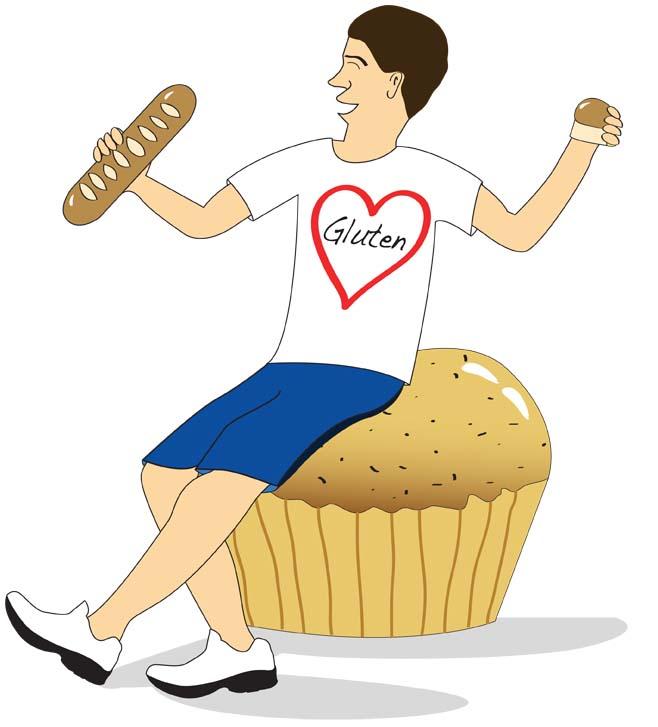And a Side of Gluten, Please
I admit it—I love the free bread when dining out. At a restaurant the other night, and after the waiter returned with our drinks, I asked if we could have bread. He replied, “We have gluten-free sourdough or gluten-free wheat.” I told him I’d like regular bread. They didn’t have any.
It got me thinking: Why is it so many people are suddenly shying away from gluten, after hundreds of years of it being a staple? The 2009 Gluten-Free Food and Beverage Market Report noted that the gluten-free (GF) market increased from $560 million in annual sales in 2004 to $1.56 billion in 2008, and is expected to reach $2.6 billion in 2012. Lately, all we hear about is how gluten damages the body—and it can, if a person has celiac disease. But for the rest of us, which is about 99% of the population, gluten can be a good thing. Here are three reasons:
1. Gluten Isn’t Junk
The benefits of whole grains and properly fermented gluten may reduce the risk of heart disease, reduce constipation, help with weight management, and may prevent high blood pressure, diabetes, and certain cancers. Whole grains, including those containing gluten, are also excellent sources of fiber and complex carbohydrates. In a meta-analysis of seven studies including more than 150,000 people, those whose diets provided the highest dietary fiber intake had a 29% lower risk of cardiovascular disease compared to those with the lowest fiber intake. Gluten also contains many important nutrients, and skimping on any of these may decrease your overall health. Several of the B vitamins, including thiamin, riboflavin, niacin, and folate, for example, are important not only for overall health, but to regulate metabolism. Minerals, like iron, aid in normal everyday functioning.
2. Gluten-Free Isn’t Always Healthier
Just because a food doesn’t have gluten doesn’t mean it’s free of sugar, fat, or calories. For example, a GF chocolate chip cookie from the Co-op has 290 calories and 14 grams of fat, but a regular cookie has 190 calories and 9 grams of fat. Oftentimes the ingredients used to replace gluten in a particular food are much more harmful to the body than gluten itself.
3. Recent Studies Show that Gluten Might not Be the Culprit after All
To strengthen dough and accelerate the baking process, many American bread manufacturers use potassium bromate—a carcinogen banned in the European Union and in many other countries around the world. Bromated flour doesn’t allow the gluten to properly ferment, which prevents the human body from processing it correctly, leading to many of the problems associated with celiac disease.
May, 2014 update: a new study claims the real culprit might be FODMAPs – short-chain carbohydrates that are used as preservatives in many breads.
An MSU graduate and registered dietetic technician, Alicia Baker loves to cross-country ski, teach dance lessons at Sizzling Salsa, and hit the trails all year long.












